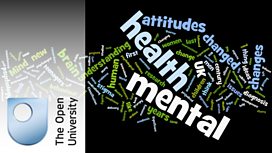Adolescent brain, Awards update, Phonagnosia
Why can mental health problems develop during adolescence? Claudia Hammond examines new evidence for a biological explanation that could help guide clinical treatment.
Claudia Hammond's studio guest is Catherine Loveday Principal Lecturer in Cognitive Neuroscience at the University of Westminster.
Adolescence is a time when life-long mental health difficulties sometimes emerge for the first time. By combining genetic data with the information from brain scans of many hundreds of people, a team at Cambridge might have worked out why this can happen. Claudia Hammond hears from neuroimaging researcher Dr Kirstie Whittaker and bioinformatics researcher Dr Petra Vertes who work together as part of the Neuroscience in Psychiatry Network (NSPN) consortium.
We've the first in an occasional update from the finalists of the All in the Mind Awards. We hear of progress from Alex : she nominated the organisation One in Four which offers subsidised long-term counselling and supports people in what can be a very long process if they want their abuser to be tried in court.
Some people can't recognise the voices they know. And they might not even realise they have the condition - until they take a test . Phonagnosia is thought to affect as much as 3% of the population. Professor of Neuroscience Irving Biederman has just published the largest analysis to date in the journal Brain and Language. He played people a whole series of celebrity voices to test their skills at identification. He discusses the causes and strategies to minimise this unusual audio anomaly.
Last on
![]()
All in the Mind is produced in partnership with The Open University.
Broadcasts
- Tue 22 Nov 2016 21:00Βι¶ΉΤΌΕΔ Radio 4
- Wed 21 Dec 2016 15:30Βι¶ΉΤΌΕΔ Radio 4
Podcast
-
![]()
All in the Mind
The show with the latest evidence on psychology, mental health and neuroscience.





